Article on the causes of wet cough in children and ways of treating it.
Contents
- Causes of a wet cough in a child
- VIDEO: Wet cough during teething
- Wet cough, temperature and runny nose in a child - causes
- Causes of a wet cough in a child in a dream
- Why does the child not have a wet cough? Causes of prolonged wet cough in a child without temperature
- VIDEO: Wet cough for respiratory diseases
- Compresses for moist cough for children: compresses, mustard, preparations
- Herbion from wet cough for children
- Inhalations for wet cough in children
- Folk remedies for wet cough for children
- VIDEO: The causes of cough and its treatment - Dr. Komarovsky
There is not a single child who at least once in his life did not cough. Parents seem to have reconciled themselves to endless illnesses. But is it necessary to reconcile? It is better to learn to quickly hiccup the cause of the cough and to eliminate it no less quickly.
Causes of a wet cough in a child
Coughing is not a disease. On the contrary, in this way the body reacts to irritation of the mucous respiratory tract. It is not considered a pathology if the child coughs up to 10 times a day, while he does not have any ailments and symptoms indicative of the disease.
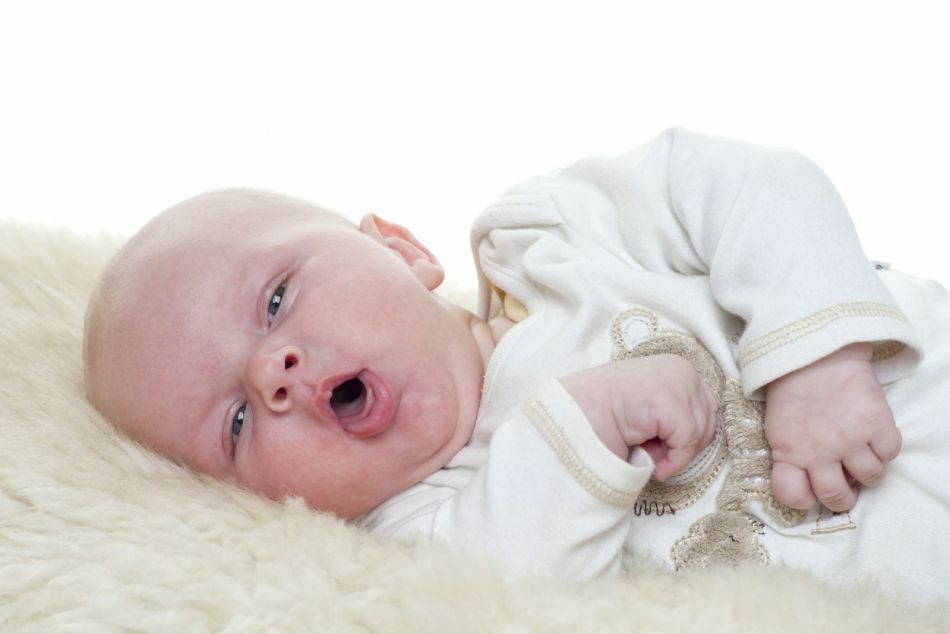 The reason for wet cough in a child is not always a disease.
The reason for wet cough in a child is not always a disease. Cough in a child can be:
- Dry, or unproductive. Children cough without phlegm in the early days of laryngitis, bronchitis, other diseases of the ENT organs and the broncho-pulmonary system, as well as with allergies, pertussis, other ailments
- Wet, or productive. As recovery or in the process of treatment, mucus, separated by the mucous membrane of the respiratory system, begins to liquefy, lose viscosity. The child begins to cough it up. Parents can hear the characteristic "gurgling" and also see clots of sputum that the child spits out when the
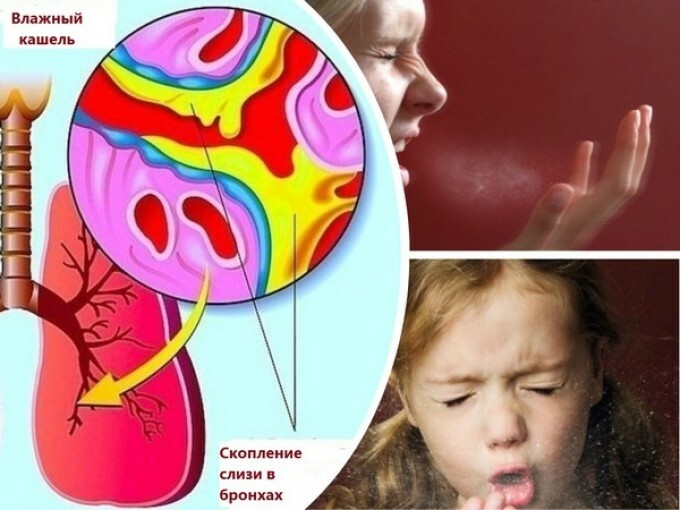 coughs. The cough cleanses the respiratory tract from the sputum accumulated in it.
coughs. The cough cleanses the respiratory tract from the sputum accumulated in it. Wet cough may indicate a disease if it is provoked:
- virus
- bacterium
- fungus
- allergen
- toxin
- other aggressive substance
Simultaneously with the appearance of a wet cough in the baby, if it becomes ill, there are other symptoms:
- a sharp rise in temperature to subfebrile( 37.5 degrees), febrile( 38-39 degrees) and above
- dyspnea and cyanosis
- chest pain
- appetite deterioration
- sleep deterioration
- lethargy
- irritability
- wheezing
SoIt is necessary to pay attention to the very mechanism of coughing and the nature of sputum that is separated from it. Reasons for immediate contact with a pediatrician are:
- suddenly appearing long-lasting, seizure-like cough
- separated in a large amount of sputum green, brown, with blood or odor odor
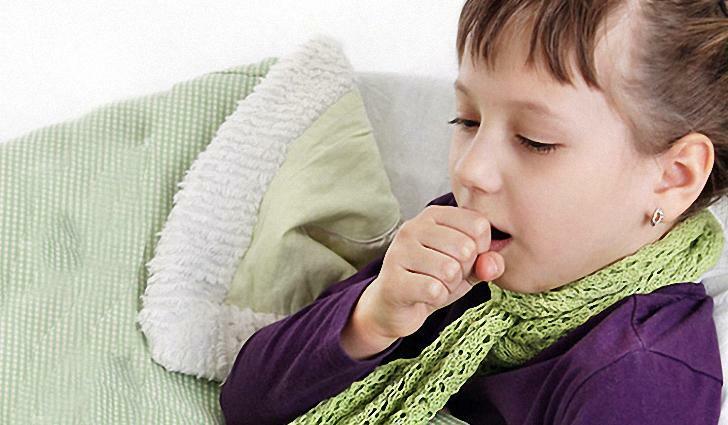 Most often, the cause of wet cough in children is any respiratory disease.
Most often, the cause of wet cough in children is any respiratory disease. Abnormal conditions in which a child can begin to cough with sputum are respiratory diseases:
- acute respiratory infections
- bronchitis
- pneumonia
- bronchial asthma
- other diseases of the respiratory system allergic
- tuberculosis
- other
Other diseases of others may also provoke a wet coughorgans and systems:
- cardiac pathology
- helminthiosis
- gastrointestinal reflux
- some venerealdiseases, for example, chlamydia( children can "pick up" it at birth or by contact - household way)
Also in children cough with phlegm can begin:
- when they are in a room with dry air
- when inhaled by household chemical vapors, tobacco smoke, dust, etc.
- when infiltrating with breast milk
- when drowning with saliva during teething
To identify the cause of a wet cough in a particular child, it should be examined. Doctors use methods:
- external examination
- auscultation
- percussion
- laboratory blood test
- chest X-ray
IMPORTANT: If the cause of the cough is a virus or bacterium, a blood test will show leukocytosis if the allergy or worms is eosinophilia VIDEO: Wet coughDuring teething
Wet cough, temperature and runny nose in a child - causes
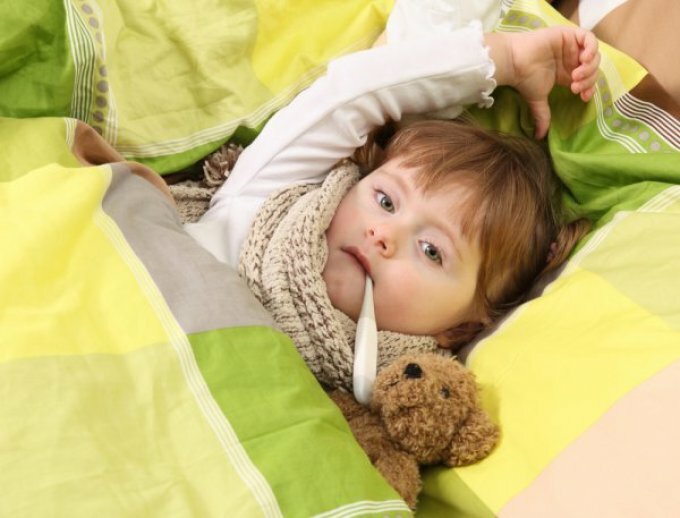 Temperature, runny nose and cough with phlegm are signs of ARVI.
Temperature, runny nose and cough with phlegm are signs of ARVI.- When a child develops ARVI, his temperature rises, his nose goes and cough begins. The virus irritates the nasopharyngeal mucosa.
It happens that on the second or third day from the onset of the disease, another symptom is added to the runny nose and temperature - a damp cough - Parents can be frightened by his sudden attacks. They think that the child inside gurgles and bubbles. It is necessary to know - thus the child's airways are cleared of mucus from the nasal cavity( snot), which drains along the back wall of the pharynx. Evacuation of sputum occurs via cough
- On the one hand, a similar transformation of a cough from dry to wet suggests that the baby is getting better. On the other hand, phlegm from the nasal cavity can infect the pharynx mucosa, cause its inflammation. It is recommended to correct the treatment and add to it the measures to sanitize the throat and larynx
- Often a pathogenic organism, a virus or a bacterium, affects not one of the child's respiratory system, but several. Bronchitis or pneumonia, the symptoms of which at a certain stage are the temperature and productive cough, can be accompanied by rhinitis. Symptomatic treatment will then be difficult, while it will be necessary to take measures to eliminate the focus of infection.
. Causes of wet cough in a child in sleep.
. A strong cough with phlegm that occurs in a baby at night should alert parents and encourage them to show the child to the doctor not onlybecause he prevents him from sleeping. The primary task is to find out the cause of coughing, which can be:
- The onset of an acute respiratory infection. Often in the first couple of viruses that hit the upper respiratory tract, do not make themselves felt in the daytime. At night, as soon as the child falls asleep, he can begin to cough both dry and with the separation of sputum
- Rhinitis. In a dream the child is in a horizontal position, does not blow his nose, so the snot drip into the throat, block the respiratory clearance, irritate the mucous throat. Includes evacuation mechanism in the form of cough
- Inflammation of mucous respiratory organs( adenoiditis, pharyngitis, laryngitis, tracheitis, bronchitis, pneumonia).In a certain period of the course of these diseases, sputum becomes more dense, in the daytime the baby begins to cough it up gradually. When he is asleep, sputum accumulates in his respiratory tract. There is a reflex paroxysmal cough.
- Allergy. Cough, in which the child is separated from sputum, can occur at night if his crib has an allergen
- Bronchial asthma. Attacks of a damp cough aggravated at night, manifested as her cough form
IMPORTANT: To cough did not prevent the baby from sleeping peacefully, first of all, parents together with the pediatrician should identify its cause and eliminate it.
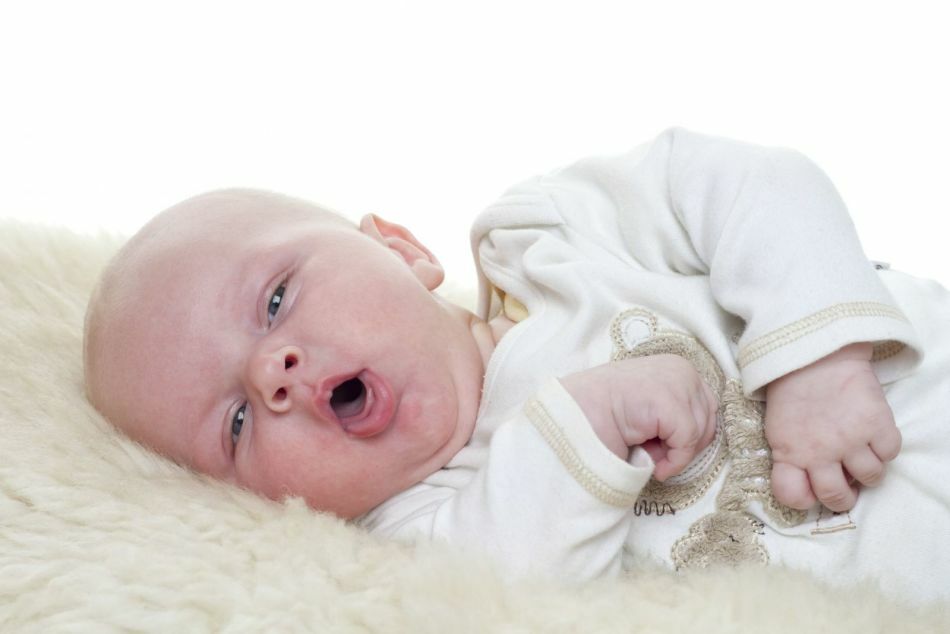 Most parents scare coughing attacks that occur in a child in a dream.
Most parents scare coughing attacks that occur in a child in a dream. Also, they can take such measures:
- to humidify the air in the child's bedroom, if it is winter, the
- heating system works to air the child's bedroom
- to lay the child not to sleep horizontally, but on a hill, the plushide
- to the infants more often to change position during their sleep
- to give copious warm drink
- remove from the baby bed allitems that have the potential to cause an allergy
- give the baby a decongestant or antihistamine drug
for the night IMPORTANT: If the child takes an expectorant, do not give it right before going to bed, lumore to do it for 1,5 - 2 hours. The medicine can drive the phlegm, and then in a dream the child will literally choke with a cough. Antitussives with productive cough are strictly prohibited.
Why does not the child have a wet cough? Causes of prolonged wet cough in a child without temperature
Cough for ARVI and bronchitis, provided adequate treatment passes after 5-14 days. If after this time the child continues to cough, it is necessary to sound an alarm, as this may mean:
- continuation of the infection process in the respiratory organ or its chronization
- pneumonia
- pulmonary tuberculosis
- helminthiosis
- bronchial asthma or other type of severe respiratory allergy
Prolonged cough withsputum separation may be accompanied by an increase in temperature( usually up to 38 degrees) or not.
To determine its cause, the child should be inspected in detail.
IMPORTANT: After bronchitis and other respiratory diseases, there may be a so-called residual cough. The cause of the disease is eliminated, but the mucous membrane of the organ remains inflamed, sputum is produced in excess of the norm. Such a cough in a child is not accompanied by other pathological symptoms and tends to fade.
VIDEO: Wet cough for respiratory diseases
Remedies for wet cough for children: compresses, mustard, preparations
Cough does not cure, treat its cause. Depending on what it is, the child is prescribed funds:
- antiviral
- antifungal
- antibacterial
- antihistaminic
- anthelmintic
Traditionally, with productive cough mucolytics are prescribed. These drugs, which help reduce the viscosity of phlegm and facilitate its expectoration, are divided into two large groups:
- Expectorants on a plant basis. Of this group, children are most often appointed by Pertussin, Mukaltin, preparations based on marshmallows and licorice
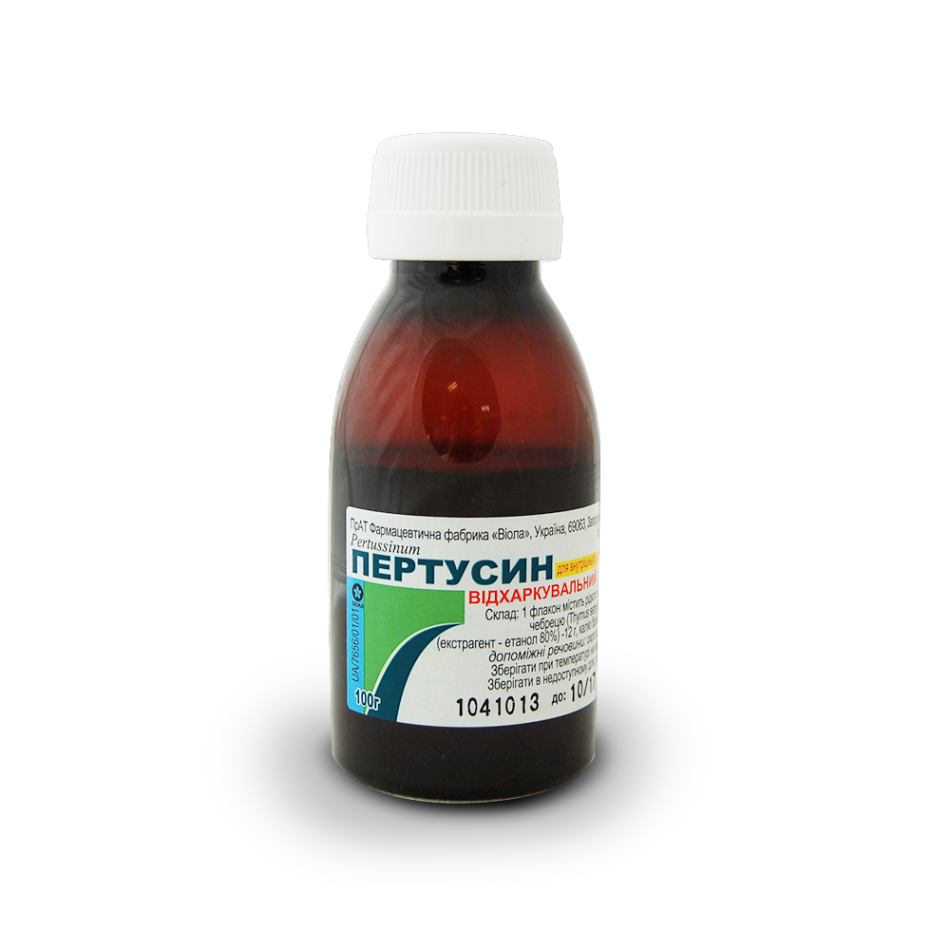 Pertussin.
Pertussin. - Synthetic mucolytics. For children in syrups, suspensions and tablets, there are Ambroxol, Lazolvan, Bromhexin, Ascoril, Ambrobene, ACS, and other
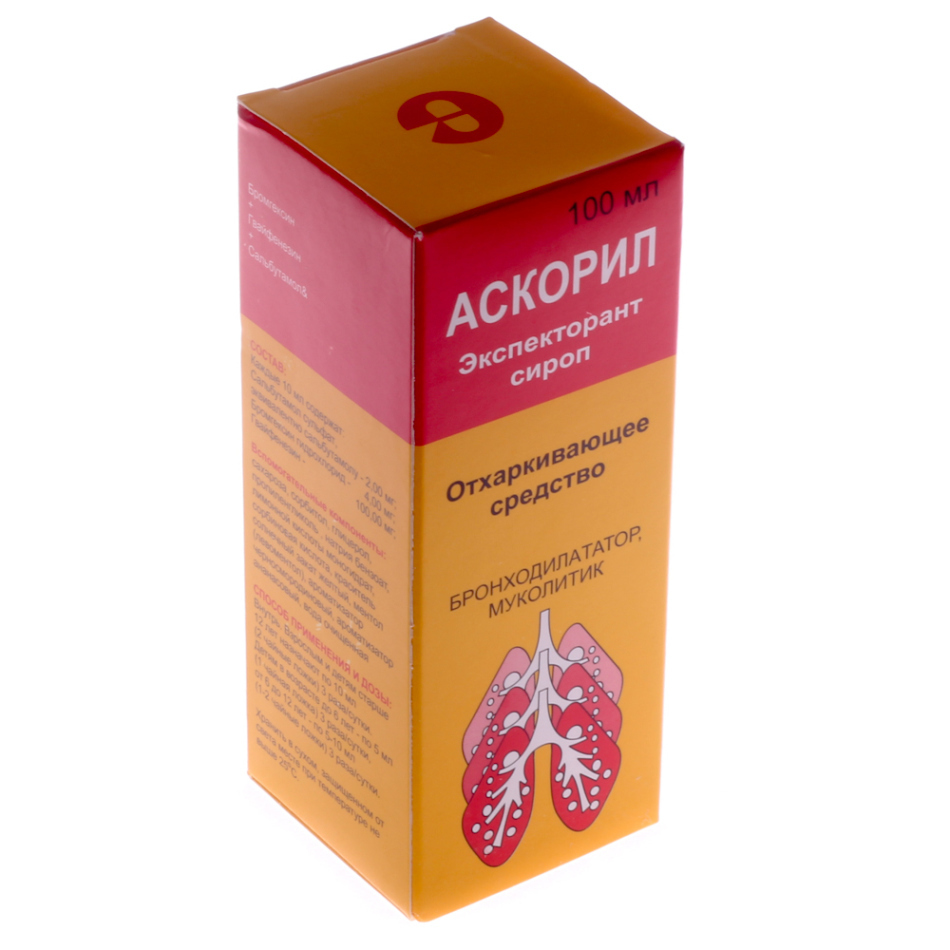 Ascoril preparations.
Ascoril preparations.
IMPORTANT: Infectious inflammation of the mucous membranes of the respiratory system, which produces a wet cough, is always an allergic component. Therefore, at the same time as the mucolytic child should be given Clarititis, Suprastin, Erius or another antiallergic agent prescribed by the doctor.
Sputum liquification and alleviation of its coughing are also facilitated by such procedures as:
- grinding
- compresses( potato, honey, vodka, etc.)
- mustard
But they must be carried out strictly according to the rules and only according to the doctor's prescription. For more information about mustard plasters, see article: http: //heaclub.ru/ gorchichniki-detyam-i-vzroslym-mozhno-li-gorchichniki-beremennym-i-detyam-do-goda-kak-pravilno-stavit-gorchichniki-ot-kashlya-bronhita-traheita-pri-osteohondroze
Herbion fromwet cough for children
For conditions accompanied by a damp cough, children from two years of age are prescribed syrup Grbion Primrose, which has expectorant properties.
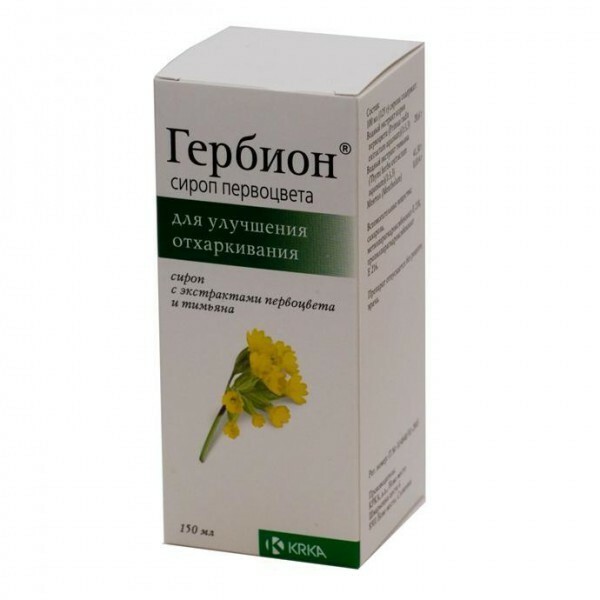 Herbionum Primula from cough with phlegm.
Herbionum Primula from cough with phlegm. The composition of the drug includes menthol, a water extract of the root of the root, an aqueous extract of thyme grass.
IMPORTANT: In addition to the expectorant properties of Herbionum, Pimple has also immunomodulatory.
- Children drink the drug on 1-2 measuring spoons 3 times a day, depending on the age
- Duration of the course of treatment is corrected by the doctor
Inhalations with a damp cough in children
Effective from a cough with separation of sputum were and will be different types of inhalation.
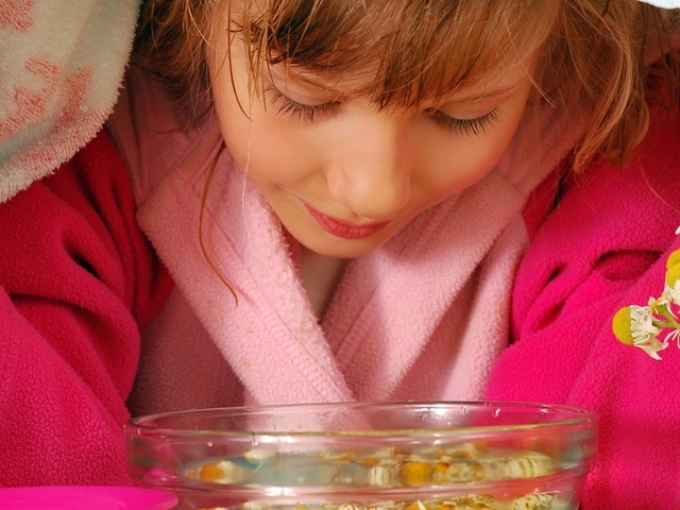 Steam inhalation with wet cough in children.
Steam inhalation with wet cough in children. They can be made, as before, over a saucepan or a kettle. They help herbal tea herbs and essential oils that have an expectorant effect. This:
- sage
- St. John's wort
- eucalyptus
- nettles
Also in many families today there is a nebulizer through which the child can be allowed to breathe with Lazolvan, saline, alkaline mineral water.
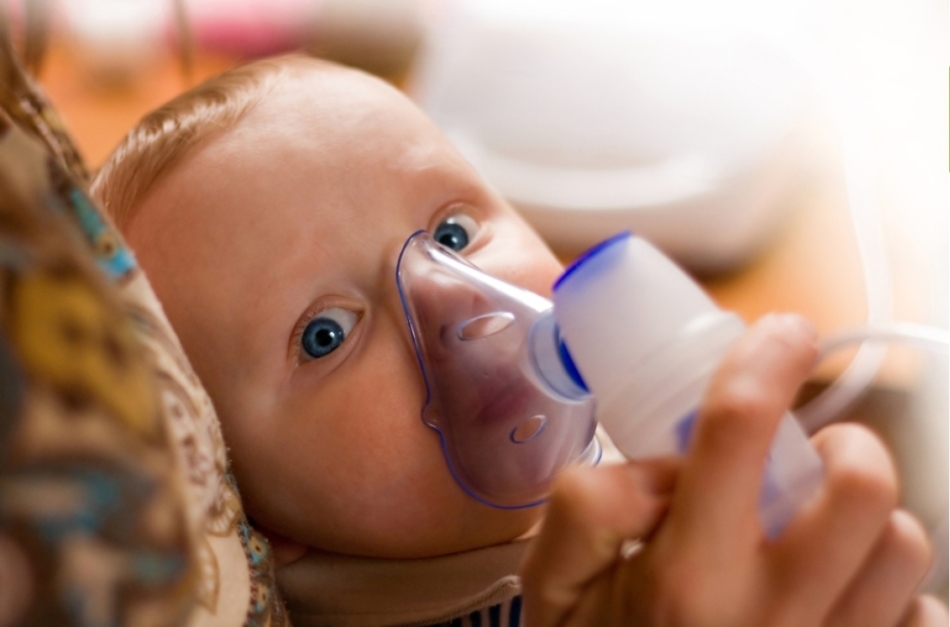 Inhalations with a nebulizer with a damp cough in children.
Inhalations with a nebulizer with a damp cough in children. Folk remedies for a damp cough for children
A child can be helped to clear his throat, giving at the same time as a pharmacy a folk remedy. Parents should arm themselves with several recipes.
RECIPE: Black radish with milk from an important cough in a child
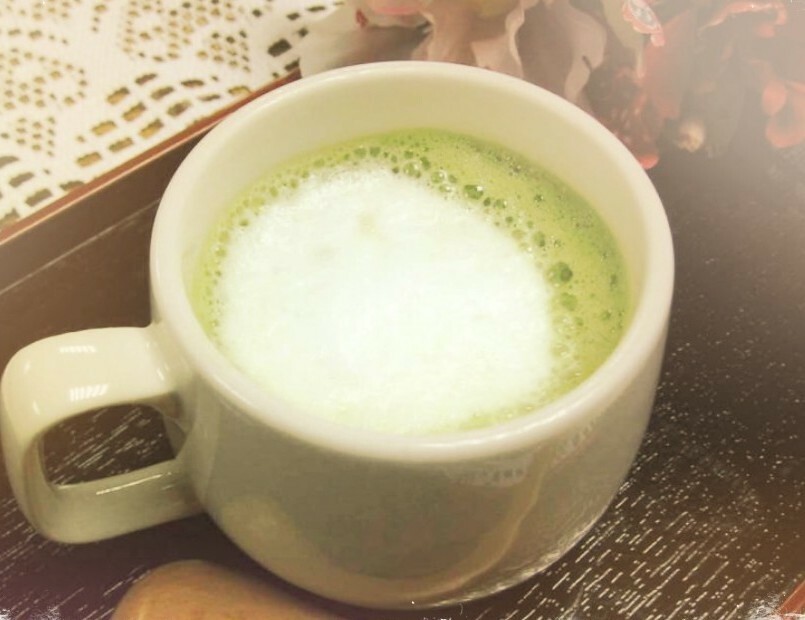 Black radish with milk from an important child cough.
Black radish with milk from an important child cough. It is necessary: Black radish juice, milk, honey
- Radish grate, squeeze the juice
- Milk boil and cool slightly
- Mix radish juice( 1 part) and milk( 2 parts), add a spoon of honey
- Give the baby an elixir an hour after, as he eats, three times a day
RECIPE: Vegetable juices and aloe from a wet cough to a child
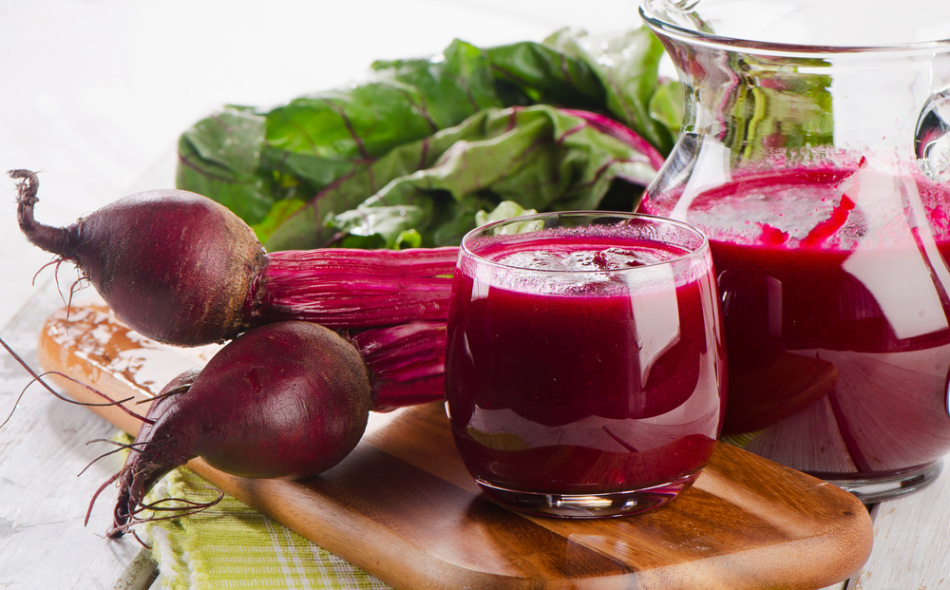 Vegetable juices and aloe from a wet child cough.
Vegetable juices and aloe from a wet child cough. It is necessary: juices of beets, carrots, black radish, cranberries - 100 ml, aloe juice - 1 tbsp.spoon, lemon juice - 50 ml
- Juices must be mixed, insist night
- If the medicine is bitter, you can add honey or sugar
- Give thrice a day 2 tablespoons.spoons
RECIPE: Licorice from a wet cough
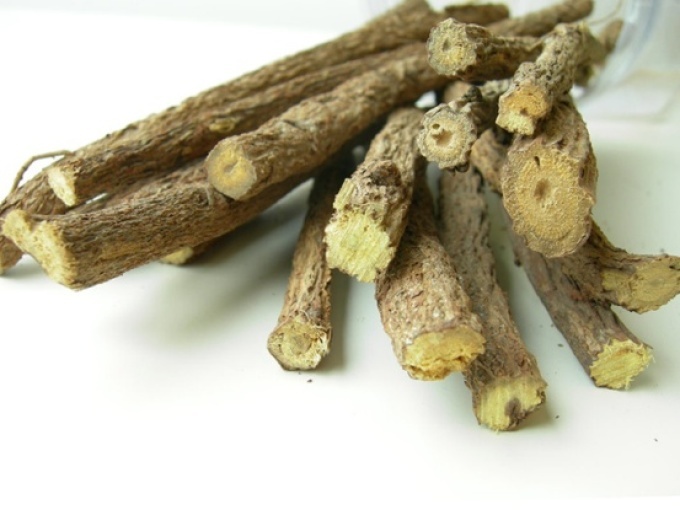 Licorice from a wet cough.
Licorice from a wet cough. It is necessary: licorice root - 10 g., Boiling water - 200 ml, honey - if necessary.
. In a water bath, crushed licorice root is stung for 20 minutes, insist an hour, filter. A child with a wet cough is given 1 tbsp.spoon three times a day.
IMPORTANT: Folk remedies used to treat a child with a wet cough should be approved by a doctor. Firstly, not all of them can be suitable for him by age. Secondly, they may have an allergic reaction
